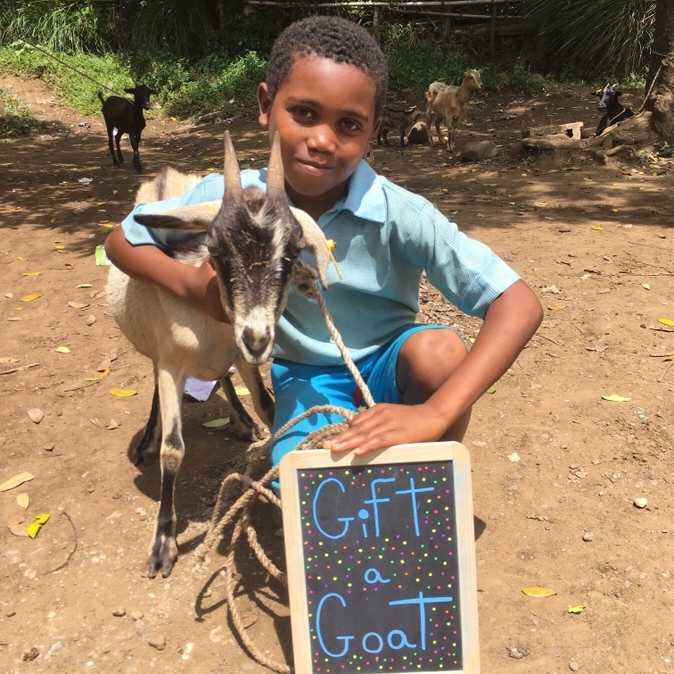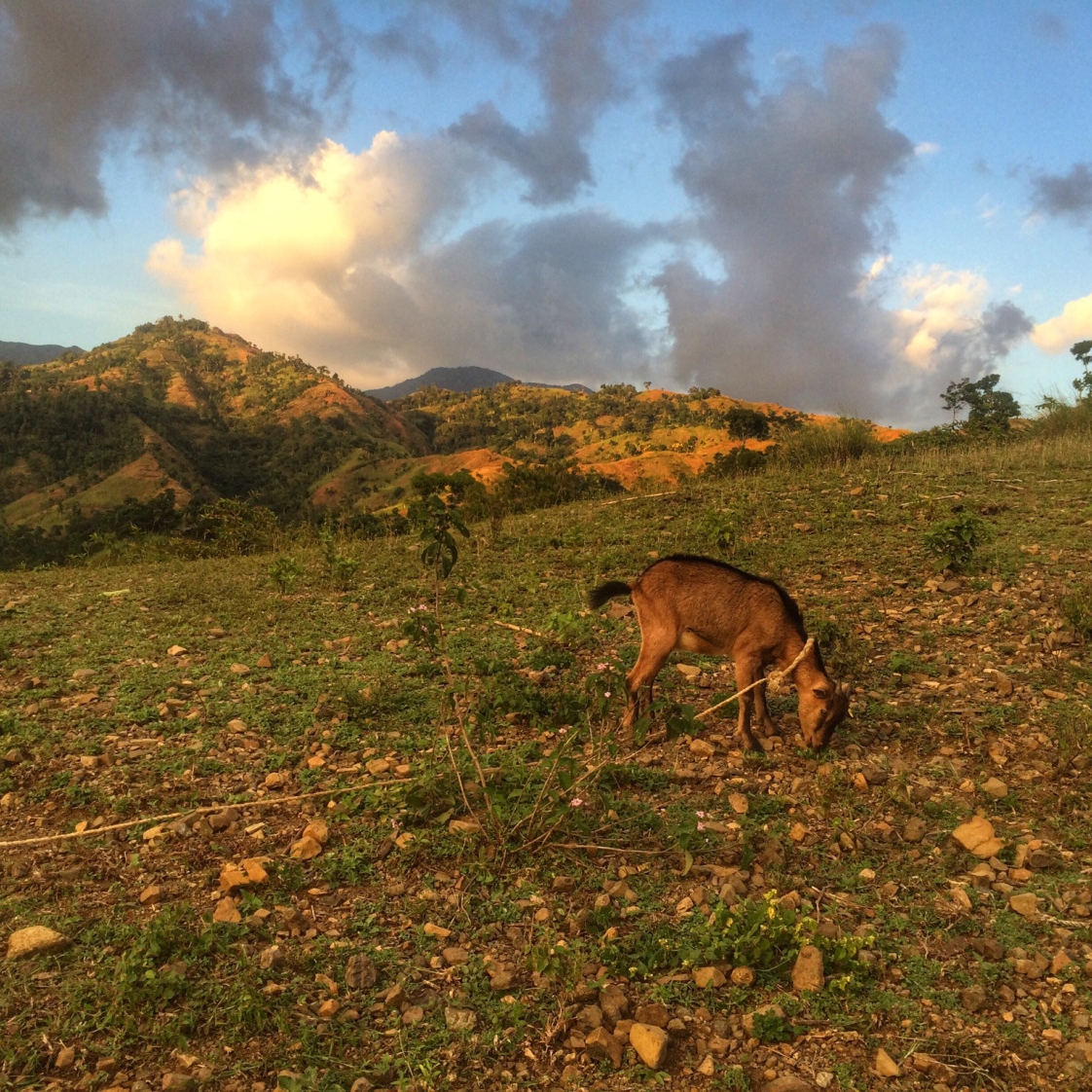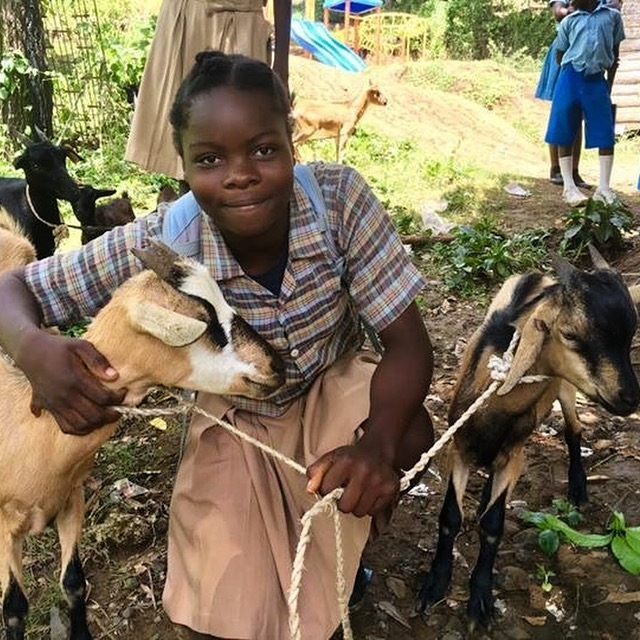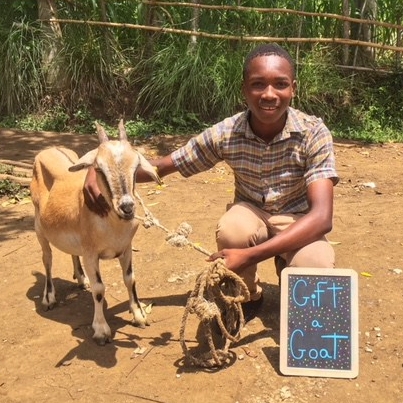Gift a Goat
Please consider donating to this project to ensure the goat program can continue. Click here and specify “Gift a Goat” to contribute to this program. All donations are tax-deductible.
Background
In response to the request for projects to assist in providing students with self-sustainable resources for themselves and their families, our friends Helene Pelosi and Caitlin Terry initiated the “Gift a Goat” project in the Marbial community in partnership with Aid International in 2014.
Per UNICEF, only 29.1% of females and 21.6% of males attend Secondary School in Haiti (generally children ages 12-18 ). The cost of pursuing education is usually too high for students to even consider. School In Haiti costs an average of US$131 annually per child according to UNICEF estimates. This cost includes uniforms, books/materials and transportation.
Thanks to the hard work of the Alix family, Aid International supporters and the local teachers, there is a school in the rural community of Marbial, Haiti which opened in 2004 with 30 kindergartners. This school currently educates over 500 students. Many students must walk two hours each way to make it to this single school in this mountainous community. Through the work of Aid International, these children now have access to education through 10th grade, which already puts them above the average education level for that region of Haiti.
Our Vision
Unfortunately, the reality is that as each child gets older, they will stop attending school even prior to reaching the 10th grade level available to them in this community, so that they can help their families. In an effort ensure that these children continue to receive proper education, our vision is to see that a female goat is given to each child in the upper grades at this school.
Why a Goat?
Goats provide an ongoing and perpetual sustenance as the owners can milk the goats, breed the goats and sell the offspring to earn much-needed income. A goat can provide so much for each family, starting with nutrition from their milk, which can be directly consumed or made into cheese and other dairy products. Soaps and lotions can also be produced from the goat's milk and sold in the market. The goat can also produce income from successfully breeding and selling the offspring as a single goat can produce two to three kids (baby goats) per year. The families can also utilize the natural fertilizer that the goat produces for their gardens, which provides most of their food.
Our goats are purchased locally in the markets close to Marbial (still a couple hours hike from the market to the school) which also helps the local economy. We bring supplies for training and equipping the students to keep their goats as healthy as possible.
Training Program
This project is about making a long-term difference in the lives of these students and families. In addition to providing the goats, our goal is to equip the older students with training in basic animal maintenance and husbandry so that they can keep their goats healthy and producing, thus creating an income to support the entire family.
In addition to raising funds to purchase the goats, a 3-day curriculum and lecture-series for the students was developed by Helene Pelosi and Dana Wramage. The newest contributor to the program is veterinarian Dr. Melinda Wilson. The curriculum focuses on proper care (including medical) of the goats, breeding and milking. This curriculum and hands-on training is mandatory for each goat recipient but it is also open to families and community members interested in learning more about goat care for their personal livestock. The students have been incredibly responsive to the training, demonstrating a full-scale commitment to the raising and production of goats.




